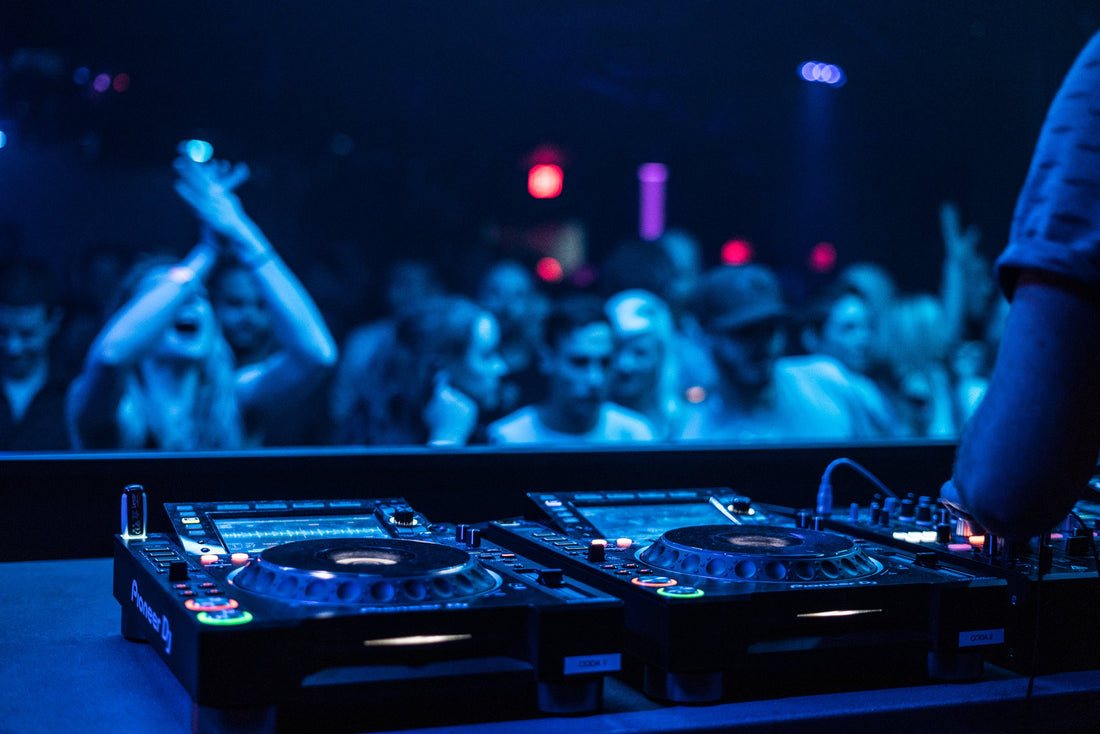
History of a DJ (Basic Version)
Share
The Evolution of DJs: From Underground Rebels to Global Icons
The history of the DJ is a fascinating journey that spans decades, intertwining with the growth of music culture, technology, and nightlife. From the early radio personalities to underground dance pioneers, DJs have played a crucial role in shaping modern music, evolving from obscure selectors to world-renowned artists.
The Birth of the DJ
The origins of the DJ (disc jockey) can be traced back to the 1930s when radio hosts began spinning records for live audiences. The term "disc jockey" was first used in 1935 by Walter Winchell, a newspaper columnist, to describe Martin Block, a popular radio announcer. These early radio DJs laid the foundation for playing and mixing recorded music, though their role was initially limited to playing records rather than manipulating sound creatively.
The Rise of Underground Dance Culture
The concept of DJing as we know it today took off in the 1960s and 1970s. The underground dance scene began flourishing in New York City, particularly in African American, Latino, and LGBTQ+ communities. DJs like Francis Grasso pioneered the technique of beatmatching at clubs like The Sanctuary, while David Mancuso’s Loft parties introduced a more immersive, music-centric experience where records were played in their entirety for deep musical journeys.
The underground scene truly exploded with the rise of hip-hop in the Bronx in the 1970s. DJ Kool Herc is widely credited as the father of hip-hop DJing, introducing the breakbeat technique, where he would loop the instrumental sections of funk records to keep dancers moving. This technique inspired the birth of turntablism, scratching, and the art of live mixing.
The Transition to Club Culture
While underground dance music thrived in alternative spaces, the late 1970s saw the introduction of disco into mainstream club culture. DJs like Larry Levan at the legendary Paradise Garage and Frankie Knuckles at The Warehouse in Chicago helped bridge the underground with club culture. Their extended, seamless mixes created an energy that kept dance floors packed all night.
By the 1980s, electronic music and house music took center stage, largely due to DJs’ influence in clubs across Chicago, Detroit, and Europe. The advent of synthesizers and drum machines allowed for new, futuristic sounds that became the backbone of house and techno. Detroit’s techno pioneers like Juan Atkins, Derrick May, and Kevin Saunderson reshaped DJ culture, emphasizing not just playing music but producing it as well.
The Evolution of DJ Technology and Global Influence
The 1990s saw an explosion of electronic dance music (EDM) worldwide. The rise of raves and festivals in Europe, particularly in the UK, Germany, and Ibiza, solidified the DJ’s role as both an entertainer and an artist. New technologies, such as CDJs, digital controllers, and software like Traktor and Serato, revolutionized DJing, allowing for more intricate mixes and live remixing capabilities.
By the 2000s and 2010s, DJs had transformed from underground curators to global superstars. Figures like Tiësto, David Guetta, and Calvin Harris helped bring EDM into the mainstream, performing at massive festivals like Tomorrowland and Ultra Music Festival. The lines between DJs and producers blurred, as many modern DJs now create their own tracks to play in sets, further establishing their unique sound and identity.
The Future of DJing
As technology continues to evolve, so does the art of DJing. AI-assisted software, VR club experiences, and live-streaming platforms are reshaping the way DJs perform and connect with audiences. However, the core essence remains the same—DJs are curators of sound, responsible for crafting unforgettable experiences on the dance floor.
From underground rebels to global superstars, DJs have come a long way, forever changing how we experience and interact with music. Whether in a small, dimly lit club or a festival with thousands of people, the DJ remains the heartbeat of dance culture, continuously pushing boundaries and keeping the world moving to the beat.
